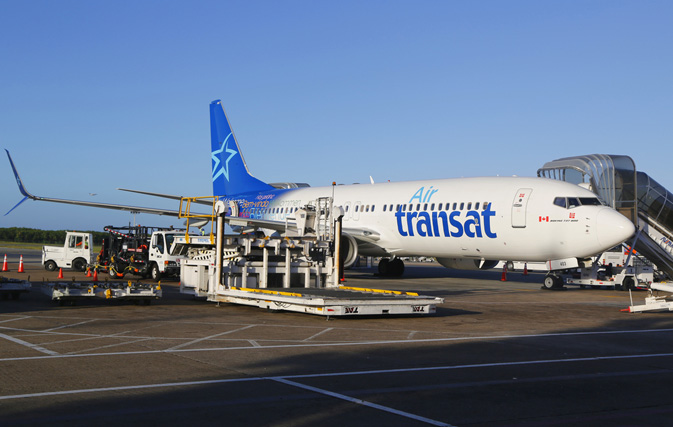MONTREAL — Transat AT will add more seats to its transatlantic routes this summer in an effort to improve results, its CEO said on Thursday, after the Canadian tour operator reported another loss amid fierce competition and persistent cost pressures.
Shares in the Montreal-based company that owns Air Transat have lost roughly a third of their value over the past year as it racked up losses in the face of a challenging Canadian economy, weak loonie, threatened pilot strike, Zika virus outbreak and terror attacks in Europe.
CEO and co-founder Jean-Marc Eustache said in its 30 years as a public company Transat has overcome worse challenges, including the 1991 fuel crisis and 2001 terrorist attacks in the U.S., after reporting a $32.1-million net loss in its first quarter on lower revenues.
“We’re going to be there and we’re going to transform the company like we said, no problem,” Eustache said following the company’s annual meeting.
Despite growing global demand for tourism, a flood of new airline seats by rivals has also put pressure on prices.
Eustache said competition, especially from Air Canada Rouge, has eaten away at Transat’s market share in the Caribbean and Europe and hurt its results.
It no longer holds the largest market share this winter to sun destinations and a 21 per cent increase in seats available to London last summer by Air Canada and WestJet depressed Transat’s (TSX:TRZ) transatlantic performance.
Eustache hopes the situation won’t be as difficult this summer since Transat will almost match Air Canada’s seven per cent increase in transatlantic capacity.
One wild card could be the lower value of the pound that could reduce the number of British visitors to Canada.
Still, Transat expects to carry more European, American and Asian travellers to Canada this year, a trend it has seen over the past few years.
Shares in Transat closed down nine cents or 1.7 per cent at $5.20 on the Toronto Stock Exchange on Thursday in the wake of the company’s latest results.
The company’s net loss for the three months ended Jan. 31 was cut nearly in half from $61.2 million largely due to a favourable swing in the value of derivatives used to offset the impact of higher fuel prices.
However, Transat’s adjusted net loss grew from $30.4 million to $36 million as costs rose due to rising fuel prices and the weaker loonie.
Transat’s net loss equalled 87 cents per share and its adjusted loss was 98 cents per share.
Revenue dropped by $36.4 million or five per cent to $689.3 million as the company cut the number of sun destination packages.
Transat expects its second-quarter results will be a “slight improvement” over last year and foresees ancillary revenues rising following last fall’s introduction of baggage fees for non-package flights to the Caribbean, Mexico and Central and South America.
However, a return to profitability in the key winter season is not a 2017 event, warned analyst Mona Nazir of Laurentian Bank Securities.
“Furthermore, significant deterioration of its historically profitability summer segment and plans to diversify via mergers and acquisitions creates another layer of uncertainty and risk,” she wrote in a report.

